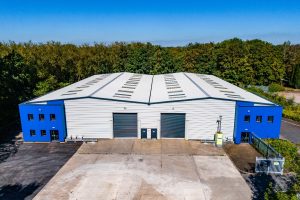Warning over widening North-South divide

THE economic gap between London and major UK cities, including those in the Northern Powerhouse, is set to widen significantly over the next 10 years unless the Government has a radical rethink of its current policy for tackling the north south divide, says a new report.
The joint study by Irwin Mitchell and the Centre for Economic & Business Research (Cebr) is called ‘UK Powerhouse – supporting economic strength and bridging the prosperity gap’ and has been launched ahead of the Conservative’s Conference in order to raise concerns about the Government’s wealth-spreading agenda.
According to the study’s unique Powerhouse Tracker, a city-by-city measurement of current and projected economic strength, London’s economy is expected to grow by 27% between 2015 and 2025 to just under £450bn (2012 prices).
At the same time, the combined growth across the North West, North East and Yorkshire & Humber, is expected to be half of that – leaving output in these regions more than £110bn lower than that of London in 2025.
The report’s analysis and economic modelling from the latest ONS data (2013) showed that the annual GVA in Greater Manchester at the end of 2015 Q2 was £57.6bn representing a 2.3% growth compared to the same period 12 months ago.
The study revealed that Greater Manchester increased employment by 3.4% to 1,269,757, whilst Liverpool added 10,145 new jobs (3.9%).
Compared to London’s 3% annual growth in GVA, over the last year, the following cities’ GVA have grown at the following rates: Greater Manchester 2.3%; Leeds 2.6%; Sheffield 2.3%; Liverpool 2%; Hull 1.6%;
Newcastle 2%; Sunderland 2.1%.
The report predicts that in the next 10 years, the fastest increases in real GVA growth will continue to be in the South with cities including Cambridge, Milton Keynes and Oxford continuing to outperform places such as Hull, Middlesbrough and Swansea.
London’s economy is expected to create an additional 548,142 jobs by 2025. This 11.1% growth in employment compares to 8.6% in Greater Manchester, 6.9% in Sheffield, 8.1% in Liverpool, 7.6% in Leeds and 9.3% in Birmingham.
By 2025, the value of the goods and services produced in London will according to the report be £444.7bn, representing a 27.2% increase.
Compared to this, the growth rate of the major Northern cities over the next ten years is expected to be: Greater Manchester 18.4%; Leeds 17.1%; Sheffield 15.8%; Liverpool 17.6%; Hull 12.8%; Newcastle 17.1%;
Sunderland 15.2%.
Roy Beckett, partner and head of Irwin Mitchell’s Business Legal Services division in Manchester, said: “The results of this study are concerning because although Greater Manchester’s economy looks to be growing at a healthy level, it is still not growing at the same rate as London and other cities in the South East.
“We believe it’s vital that the entire United Kingdom has the opportunity to flex its economic muscle.
“Not only do we want to see London continue to flourish, it’s absolutely vital that the rest of the UK doesn’t get left behind, so that we make the best possible use of our natural and economic resources – the most important of which are the people that live in this great country of ours.
“Investment in infrastructure is one part of the mix and we believe that the Government needs to listen to the voice of business and employ a range of policies tailored to different regions, rather than assuming that a one size fits all approach will work.”
As part of the UK Powerhouse study, Irwin Mitchell commissioned a YouGov survey of 1,000 businesses to examine the policy measures which the business community themselves think are the best way of boosting regional economic growth.
Overall the survey found that only 31% of businesses thought the Government had taken the relevant steps to address economic growth in the region they operated in, whilst 38% thought more action was required.
The regional breakdown of the survey results is however stark. Despite all the rhetoric around building a Northern Powerhouse, only 22% of North West bosses thought that the Government was doing a good job.
Six out of 10 North West businesses said greater devolution of powers would boost economic growth in their region with even more (64%) believed that an increase in transport & infrastructure spending would be beneficial. A third responded by saying that they wanted the ability to set corporation tax.
When asked what the number one priority for helping to support future economic prosperity, a quarter (22%) of businesses in the region responded by calling for greater investment in the region’s roads. Large scale infrastructure projects such as HS2 scored much lower.
Irwin Mitchell’s UK Powerhouse report will be published later this month and will provide a review of policy considerations for ensuring the prosperity gap can be closed and the Government’s wealth spreading agenda can succeed.








